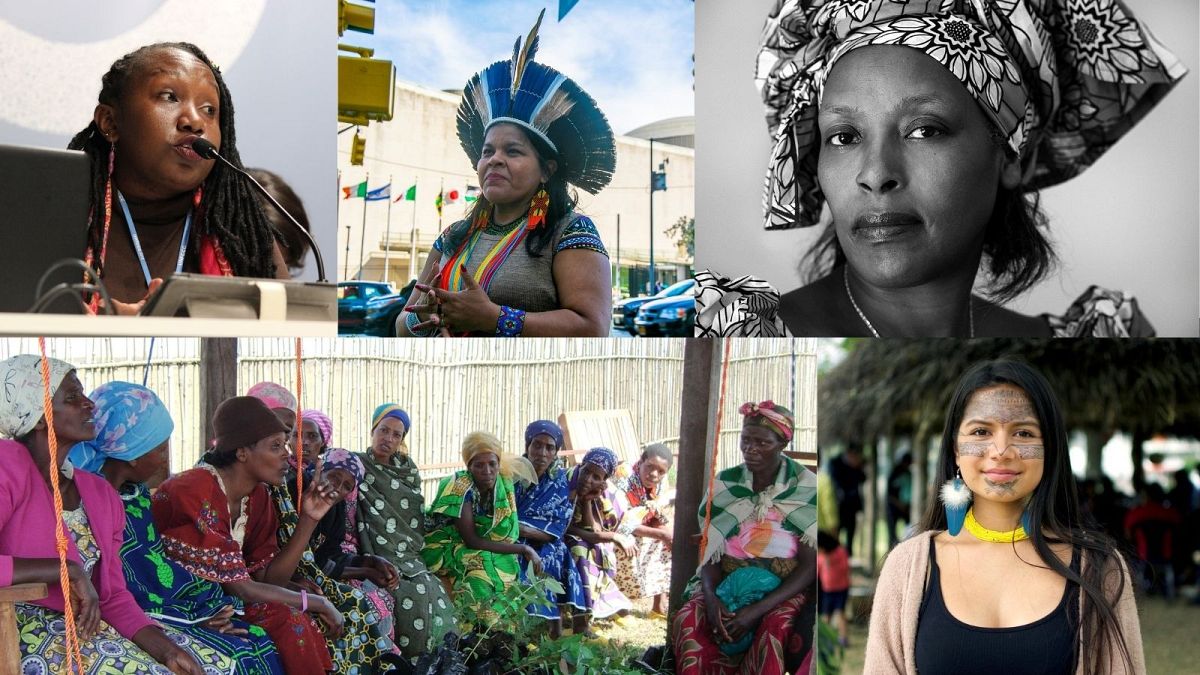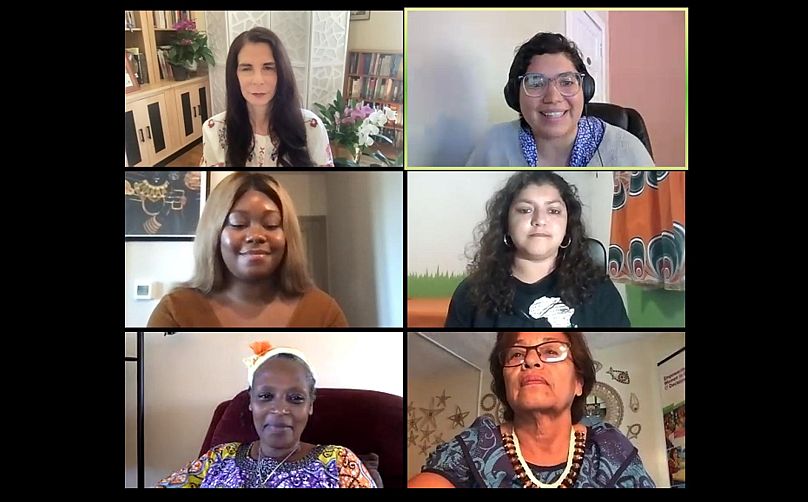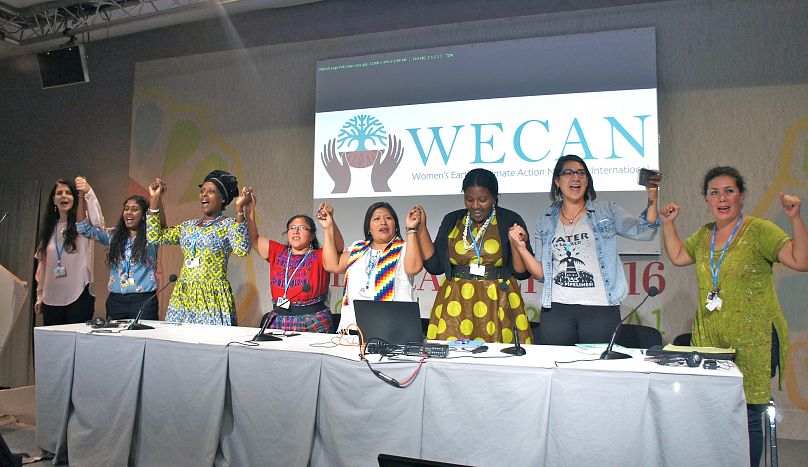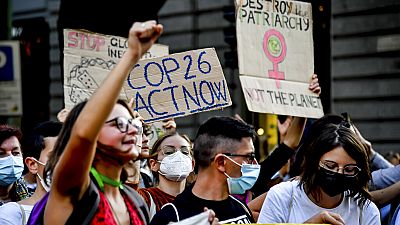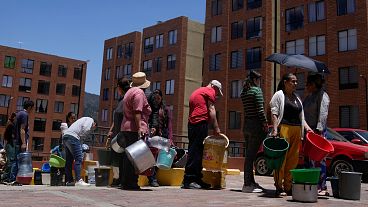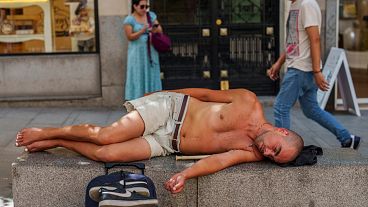The Global Women’s Assembly for Climate Justice has issued world leaders with a 7 point plan for tackling the climate crisis
Women must be prioritised at COP26 and other critical summits, the Global Women’s Assembly for Climate Justice is urging world leaders.
From the forests of the Democratic Republic of Congo (DRC) to the imperilled Marshall Islands and plains of the Columbia River Plateau, women and Indigenous communities have been disproportionately affected by climate change - but also hold the answers.
In a seven-point plan delivered during the UN General Assembly in New York this week, undersigned by more than 120 organisations, the women’s assembly is calling on governments and financial institutions to act on the ‘code red’ findings of the latest IPCC report in an equitable way.
“The ocean is in our backyard, and literally on our front lawn. There is no higher place that is safe to retreat to,” said former president of the Republic of the Marshall Islands, Hilda Heine, highlighting both the vulnerability of low-lying island nations, and the primary role of women within them.
“But we also have lots of knowledge and innovations to share, as bright spots for others in the fight against climate change.”
Speaking at a conference before the women’s assembly - which runs online from Saturday 25 to Friday 30 September - five female leaders stressed the importance of amplifying the voices of women, gender non-conforming people, Black and Brown communities and Indigenous peoples.
“If Black women were running this COP26, we would get solutions, I tell you, because we are on the frontline,” said Neema Namadamu, a pioneering women’s and disability rights activist who has taken on mining companies in the DRC.
Katherine Quaid, Communications and Outreach Coordinator of Women's Earth and Climate Action Network (WECAN), which is organising the assembly, said: “Each indigenous community carries a vast wealth of traditional ecological knowledge and how to live in reciprocity with the land.
“In my community [Nez Perce, Cayuse, Paiute], women are the ones holding the knowledge,” she said, adding “I’m powered by matriarchs.”
The disproportionate burden of care work on women is one of the key points raised in the call to action, which demands ‘dignified conditions’ for what is an essential world service.
Dipti Bhatnagar, who works for FoE International in Mozambique added: “we need a new economics for the planet, one that recognises and values care work to be shared between men, women and the state to centralise life in all of our decisions and the way that our systems are created.”
With the world still divided on whether it is fair for COP26 to go ahead - given the difficulties of delegates from unvaccinated countries travelling during the pandemic - speakers also criticised the UK government’s failure to ensure equitable and safe participation.
“It’s very late in the game,” said Osprey Orielle Lake, Executive Director of WECAN, questioning how women from global south countries were meant to finance their quarantines in expensive hotels.
What is clear, she added, is that systemic change is desperately needed: “we can’t just barrel through another COP.” In the words of former president Heine, using the “untapped resource” of women’s expertise will provide some world-saving solutions.
What are the seven action steps for governments?
1. End Fossil Fuel Expansion and Rapidly Accelerate a Just Transition to 100% Renewable and Regenerative Energy
Governments must align their actions with the Paris Agreement target of keeping global warming at or below 1.5° C.
The Global Women’s Assembly for Climate Justice is calling on policymakers to immediately halt the extraction, expansion, and burning of fossil fuels, and implement a just transition to a 100 per cent renewable and regenerative economy and social system.
Rejecting false solutions - including “net zero” schemes - is another demand from the collective, as is supporting fossil fuel workers to find new, green employment.
2. Promote Women’s Leadership and Gender Equity
Ensuring women’s full and equal participation in all aspects of climate policy and finance is key to tackling the climate crisis.
The Assembly calls on governments to acknowledge the unique and essential roles, responsibilities, solutions, needs, and desires of women in climate change mitigation efforts.
3. Protect the Rights of Indigenous Peoples
The traditional ecological knowledge of agriculture, seeds and biodiversity held by Indigenous communities is indispensable for confronting climate change, even as Indigenous Peoples are disproportionately harmed by fossil fuel development, deforestation, extractive industries and climate impacts.
4. Protect Forests and Biodiversity
The Global Women’s Assembly for Climate Justice is calling for a global moratorium on the logging and burning of all old growth forests.
They are also battling the commodification of forest carbon through carbon offset schemes, which have been widely discredited.
5. Preserve Oceans and Freshwater and Address Water Security
Outlawing water privatisation is one of the Assembly’s more radical demands to protect water.
They urge all governments to recognise that access to sufficient, safe, clean, affordable water is a human right.
6. Promote Food Security and Food Sovereignty
With the impacts of global warming driving food insecurity, reducing the production and consumption of industrial meat and dairy products is essential
The women climate leaders offer an alternative vision, of decentralised “people-run” economies, natural, non-genetically modified foods, and cyclical and sustainable agro-ecological farming practices.
7. Protect the Rights of Nature
The Rights of Nature is a groundbreaking legal framework that recognises natural systems, such as rivers, forests, mountain ranges and water bodies, as rights-bearing entities with an inviolable claim to protection and preservation, the Assembly explains.
Although the Rights of Nature is new to our legal system, it is based on traditional knowledge from Indigenous Peoples about how to live in harmony with the natural laws of the Earth.
The Global Women’s Assembly for Climate Justice has also produced a number of action steps for financial institutions, showing them how to redirect resources into climate solutions.
